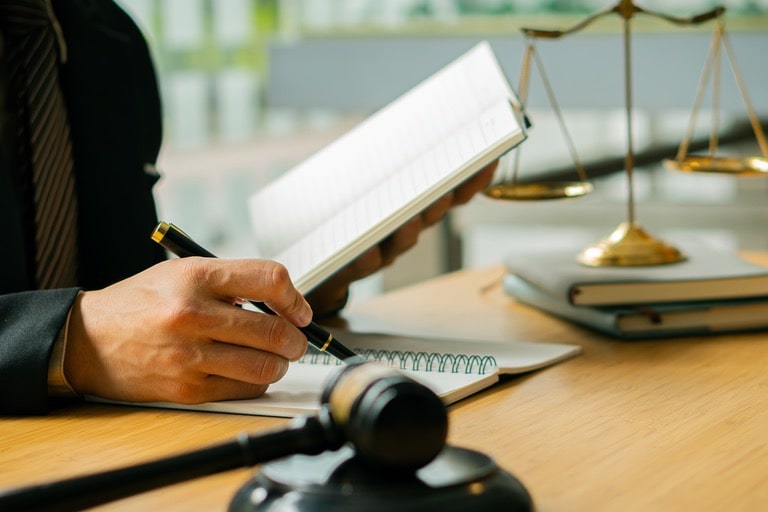Exploring the Process of Deposition: A Comprehensive Guide

You may not be familiar with the process involving the legal deposition. Are you a witness to some crime or accident, and are you supposed to make a legal statement about it but don’t know what to expect during the process of deposition?
It is crucial to stay calm and to tell the truth at any moment, as you will take an oath. With the help of the right attorney and this article, you will not worry anymore. So, do not panic. Follow the tips provided here, and you will be ready for it.
The Purpose of the Deposition
Before everything else, it is important to be familiar with what the deposition actually includes. A deposition is a process where a witness provides sworn testimony outside of the court. The testimony is usually recorded in order to be used later on during the trial, and it is one of the most important pieces of evidence in any legal case.
The witness is under a legal obligation to tell the truth and is exposed to questions from both the defendant’s and the plaintiff’s lawyer. The whole process is usually held in one of the lawyers’ offices. This kind of statement is one of the most important pieces of evidence, as it is supposed to be the most reliable one, as the witness would face legal consequences if not being completely honest.
Get Informed About the Process
This process can also differ from state to state, like any other minor aspect of law. It is important to find reliable sources. When researching for information about depositions, it is important to be specific to your state in order to ensure all relevant and necessary details are included.
Rather than seeking general information, focus on your state by searching for phrases such as ”what happens at a deposition in Texas?” This will help avoid overlooking any important state-specific information.
On the other hand, a legal attorney is the most reliable source of this information because they are familiar with all aspects of the process. The depositions, however, can differ according to the type of case and witness.
In the case of some more personal cases, such as family cases, the questions will, of course, be more personal and will include aspects of someone’s personal life. In car accidents, the questions would primarily be regarding what we saw around that particle moment.
The Preparation for the Deposition
The primary person responsible for preparing you for the deposition is your attorney. As someone who specializes in this area, your attorney can have some possible questions in mind. He has to prepare you for questions and possible inconveniences. For example, if you witnessed a pedestrian accident, your attorney can predict some questions that might help you.
It is important to follow all legal advice, as the other side can use one simple mistake in their favor. Initial meetings are crucial so that your attorney can see whether you are ready for the final deposition. You can work on some of your weaker sides and he can inform you if some changes occur.
You can also practice your answers to some questions your attorney thinks they may ask you. The deponent must be someone who has no relation to any of the participants in the legal process, as they won’t be committed to any of the participants.
The Deposition Process
Once the day is scheduled and both sides are informed, your final preparations have to begin. First of all, the witness must take an oath to tell everything he or she knows and to only tell the truth. Once everyone has witnessed the oath, questions can begin. The attorney can try to object to the questions, but usually, the deponent must still answer.
You should remember to stay calm and take your time before answering the questions because if you feel the pressure to answer them quickly, you may exclude some details, and you’ll leave an impression as if you are not honest enough. At the same time, an important thing is to listen to the questions carefully so that you are sure you understand them fully before answering.
If there is something unclear, feel free to ask them to explain what they mean. Consult your attorney if you need some help. Be prepared for some tricky questions, but do not worry as long as you are honest. Answer precisely the questions given, as any unnecessary and additional information may just complicate and make the process much longer.
After the Deposition
You may think your duty is done after you have answered all the questions and that you have no more obligations. However, you have to get the transcript written by a legal person or see the footage of the whole process to pay attention to the accuracy of your answers or if you think you have excluded something.
It is important to check everything before they submit the final evidence and before you officially sign the testimony. Once signed, legal transcriptions or dictation can also be used against you if you provide some false information or something that goes against the other pieces of evidence.
There can be situations where you will have to testify at the trial. Some lawyers or the court will usually demand this if they think it is necessary. In such cases, your attorney is responsible for all legal aspects and introducing you to your rights and responsibilities.
This process may seem stressful and scary at first, mostly because someone observes your mimicry and reactions during the whole process, which may make you anxious and quite stressed out. It is important to go through the process with your attorney and to practice everything that may occur.
Be well-informed, as there can be small details that can make the whole process much more difficult than when you know your rights and possibilities. With the right attorney and essential guidelines, you will see this process is not as complex as it seemed. Whatever you do, do not skip the two most important rules of the whole process: tell the truth and do not speak in someone’s favor.





